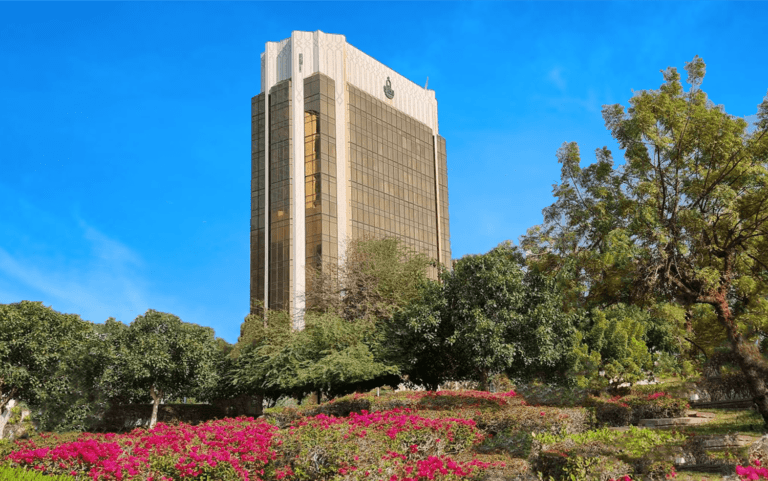By James Mathew, CEO & Managing Partner, UHY James Chartered Accountants
The Arab Monetary Fund (AMF) has projected a robust 6.2% growth for the UAE economy in 2025, a figure that promises substantial shifts across multiple sectors. Here, we delve into the implications of this forecast, particularly focusing on the real estate market, tourism sector, and evolving financial strategies.
Economic Impact
The AMF’s latest Arab Economic Outlook Report predicts 3.9% growth in 2024 and an impressive 6.2% in 2025. This growth is driven by tourism, real estate development, robust international trade, heightened capital spending, and innovation-driven high-tech industries. As the UAE economy expands, the real estate sector is set to benefit immensely. Higher-income levels will push the demand for residential and commercial properties, and increased infrastructure development will enhance the attractiveness of real estate projects, leading to higher property values in well-connected areas. With economic growth, the regulatory landscape in real estate is likely to evolve. Governments may introduce new policies to manage the market, potentially easing foreign ownership restrictions and implementing measures to drive sustainable development.
Impact on Real Estate
Given the positive UAE economic growth impact, we can anticipate dynamic shifts within the UAE’s real estate market. The UAE is set to retain its top spot as the world’s leading wealth magnet, attracting high-networth individuals (HNWIs) from the UK, India, and Europe. Dubai, already home to a significant number of millionaires, is expected to see an influx of 6,700 HNWIs by the end of 2024, with projections suggesting the country may add 30,000 millionaires over the next five years. Investor-friendly visa reforms have accelerated foreign ownership and business setups in the UAE. Foreign nationals can now purchase properties, and Golden Visa holders can leverage a streamlined process for property ownership, expanding both their business and property portfolios.
Impact on Tourism
The anticipated economic growth will significantly influence the tourism sector, boosting broader economic development. The UAE’s emphasis on tourism as a key economic pillar will drive increased investments in infrastructure and hospitality. To maximize tourism’s potential, strategies should focus on enhancing visitor experiences, promoting cultural heritage, and expanding tourism-related services. With a vibrant and evolving tourism sector, the UAE is set to attract even more international visitors, further strengthening its position as a global tourism hub.
Impact on Taxation and Corporate Tax
Economic growth in the UAE will inevitably impact corporate tax policies and regulations. The introduction of corporate tax marks a significant shift, and future adjustments to tax rates and thresholds are expected, alongside specific deductions and incentives for priority sectors. Free zones, traditionally offering significant tax exemptions, may undergo policy adjustments to align with international standards and contribute more broadly to the economy. Additionally, discussions around modifying the VAT rate or broadening its base could arise, affecting business costs and pricing strategies. Businesses will have opportunities to leverage tax incentives, strategically position themselves in free zones, and engage in forward-thinking financial planning to adapt to these evolving regulations.

“As the UAE continues to transform its economic landscape, investors should seize opportunities that align with the country’s evolving priorities and growth areas.”
– James Mathew, CEO & Managing Partner,
UHY James Chartered Accountants
Impact on Audit and Financial Practices
In light of the forecasted economic growth, businesses should be mindful of evolving audit practices and financial management strategies. Maintaining consistent financial records is crucial for establishing credibility, supporting banking relationships, and evaluating vendors. Providing audited financial statements will become increasingly important for meeting credibility thresholds in a competitive environment. As businesses prepare for the economic changes ahead, adopting best practices in financial management and ensuring thorough, accurate accounting will be key to navigating the shifting landscape.
Long-Term Outlook
Looking beyond 2025, the UAE’s economic trajectory is expected to continue its growth and innovation. Businesses and investors should stay aligned with market trends, emphasize sustainability, and maintain a competitive edge. Monitoring consumer preferences, industry innovations, and technological developments will be essential for long-term success. Staying adaptable and forward-thinking will help businesses remain relevant and thrive in the evolving economic environment.
Personal Insights & Investment Advice
For investors aiming to capitalize on the forecasted growth, focusing on effective taxation strategies and robust financial planning is essential. Leveraging sector-specific tax incentives, engaging in strategic planning, and aligning investments with emerging economic trends will be crucial. UAE is rapidly transforming its economic environment and strengthening its real estate landscape to overshadow cities like London and New York. With millionaire migration gaining prominence in the UAE and foreign-owned real estate gaining momentum across the country, the UAE economic outlook is buoyant on diverse levels. Robust compliance strategies and investor-centric visa reforms are transforming the country into a preferred hub for realizing business expansion goals. The Arab Monetary Fund’s 6.2% growth forecast for the UAE clearly mirrors the country’s robust economic trajectory across diverse sectors—be it tourism, hospitality, real estate, and digital transformation.


